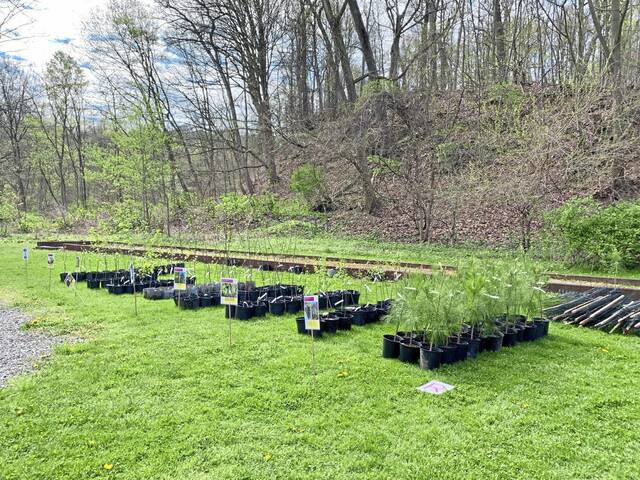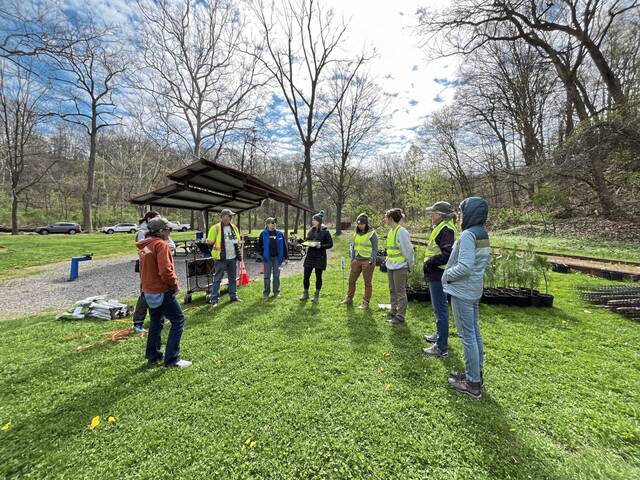Penn Hills has a need for seedlings.
The Penn Hills Shade Tree Commission, in partnership with Tree Pittsburgh, had no problem finding homes for 200 trees at an April 20 giveaway in Penn Hills Community Park.
Kathy Raborn, president of the Shade Tree Commission, hopes to offer free trees on a regular basis as a way to strengthen biodiversity and combat tree canopy loss.
Penn Hills lost about 1%, or 63 acres, of its tree canopy between 2015 and 2020, according to Tree Pittsburgh. Its total tree canopy was 6,524 acres in 2020 — that’s 53.31% of the municipality, which encompasses roughly 12,390 acres.
In general, a substantial portion of deforestation comes from homeowners and housing developments, according to Katie Whitewood, tree adoption program manager for Tree Pittsburgh.
Most of the trees distributed at the event went to Penn Hills residents, who could register before the rest of Allegheny County. Each registrant took home one to three trees, choosing from seven native tree species and one nonnative species.
Of these species, the American linden, bur oak, loblolly pine, red maple and swamp white oak can go a long way in improving urban canopies, Whitewood said.
Attendees also received protective fencing and a guide to caring for their new plants.
The fencing is especially important, according to Raborn.
“Young tree seedlings do not stand a chance of surviving without protection from the deer in Western Pennsylvania,” Raborn said.
She also recommends planting trees as deep as the original pot and three times as wide without adding fertilizer. Trees often react to bagged soil or manure by avoiding existing soil and failing to properly root.
Frequent, deep watering is important, too.
Tree Pittsburgh runs adoption events throughout the spring and fall, with more than 30 completed or on the schedule this year in parks across the county.
All spring events are full, its website shows.
Tree Pittsburgh used to hold four events each year, where it would give away about 1,000 trees, Whitewood said. Now, the nonprofit relies on smaller, more frequent events as a way to reach more low-canopy communities.
Upcoming Local Events
The tree adoption program is funded, in part, by the U.S. Forest Service. The agency has allocated $8 million in Inflation Reduction Act funds to the Pittsburgh Canopy alliance, a group of 10 organizations, including Tree Pittsburgh.
That money runs through 2028 and will be used to cautiously expand the program, according to Whitewood.
“There are limitations of how much can we handle,” Whitewood said. “We can send (the trees out), but we want to make sure they’re also being maintained.”
Other funding comes from corporations and private foundations.
Tree Pittsburgh grows saplings from seed at its heritage nursery near the 62nd Street Bridge. These seeds are hand-collected in cemeteries and other public areas.
Other nurseries rely on grafts, a process that produces a separate, genetically identical tree.
“It’s very significant that they grow their trees from seed because that means each tree has genetic diversity — which is very important for diseases and insect resistance,” Raborn said.
Jack Troy is a TribLive reporter. A Pittsburgh native, he joined the Trib in January 2024. He can be reached at jtroy@triblive.com.


